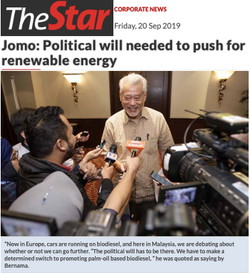HARARE, Zimbabwe, Feb 11 2025 (IPS) - Many in the West, of the political right and left, now deny imperialism. For Josef Schumpeter, empires were pre-capitalist atavisms that would not survive the spread of capitalism. But even the conservative Economist notes President Trump’s revival of this US legacy.
Economic liberalism challenged
Major liberal economic thinkers of the 19th century noted capitalism was undermining economic liberalism. John Stuart Mill and others acknowledged the difficulties of keeping capitalism competitive. In 2014, billionaire Peter Thiel declared competition is for losers.
A century and a half ago, Dadabhai Naoroji, from India, became a Liberal Party Member of the UK Parliament. In his drainage theory, colonialism and imperial power enabled surplus extraction.
As the Anglo-Boer war drew to a close in 1902, another English liberal, John Hobson, published his study of economic imperialism, drawing heavily on the South African experience.
Later, Vladimir Ilyich Lenin cited Hobson, his comrade Nikolai Bukharin and Rudolf Hilferding’s Finance Capital for his famous 1916 imperialism booklet urging comrades not to take sides in the European inter-imperialist First World War (WW1).
Three pre-capitalist empires – Russian, Austro-Hungarian and Ottoman – ended at the start of the 20th century. Their collapse spawned new Western nationalisms, which contributed to both world wars.
Germany lost its empire at Versailles after WW1, while Italian forays into Africa were successfully rebuffed. Western powers did little to check Japanese militaristic expansion from the late 19th century until the outbreak of World War Two (WW2) in Europe.
Imperialism and capitalism
Economists Utsa and Prabhat Patnaik argue that the primary accumulation of economic surplus – not involving the exploitation of free wage labour – was necessary for capitalism’s emergence.
Drawing on economic history, they clarify that primary accumulation has been crucial for capitalism’s ascendance.
Thus, imperialism was a condition for capitalism’s emergence and rapid early development. Ensuring continued imperial dominance has sustained capitalist accumulation since.
The 1910s and 1920s debates between the Second and Third Internationals of Social Democrats and allied movements in Europe and beyond involved contrasting positions on WW1 and imperialism.
For most of humanity in emerging nations, now termed developing countries, imperialism and capital accumulation did not ‘generalise’ the exploitation of free wage labour, spreading capitalist relations of production, as in ‘developed’ Western economies.
Due to capitalism’s uneven development worldwide, the Third International maintained the struggle against imperialism was foremost for the Global South or Third World of ‘emerging nations’, not the class struggle against capitalism, as in developed capitalist economies.
After decades of uneven international economic integration, including globalisation, the struggle against imperialism continues to be foremost a century later. Imperialism has reshaped colonial and now national economies but has also united the Global South, even if only in opposition to it.
After observing the peace negotiations after WWI, John Maynard Keynes presciently criticised the terms of the Treaty of Versailles, warning of likely consequences. In The Economic Consequences of the Peace, he warned that its treatment of the defeated Germany would have dangerous consequences.
But Keynes failed to consider some of the Treaty’s other consequences. Newly Republican China had contributed the most troops to the Allied forces in WW1, as India did in WW2.
Germany was forced to surrender the Shantung peninsula, which it had dominated since before WW1. But instead of China’s significant contributions to the war effort being appreciated at Versailles with the peninsula’s return, Shantung was given to imperial Japan!
Unsurprisingly, the Versailles Treaty’s terms triggered the May Fourth movement against imperialism in China, culminating in the communist-led revolution that eventually took over most of China in October 1949.
Even today, popular culture, especially Western narratives, largely ignores the role and effects of war on these ‘coloured peoples’. By contrast, understating the Soviet contributions to and sacrifices in WW2 was probably primarily politically motivated.
Another counter-revolution
Franklin Delano Roosevelt was elected US president in 1932. He announced the New Deal in early 1933, years before Keynes published his General Theory in 1936.
Many policies have been introduced and implemented well before they were theorised. Unsurprisingly, it is often joked that economic theory rationalises actual economic conditions and policies already implemented.
Keynesian economic thinking inspired much economic policymaking before, during, and after WW2. Both Allied and Axis powers adopted various state-led policies. Keynesian economics remained influential worldwide until the 1960s and arguably to this day.
The counter-revolution against Keynesian economics from the late 1970s saw a parallel opposition movement against development economics, which had legitimised more pragmatic and unconventional policy thinking. From the 1980s, neoliberal economics spread with a vengeance and much encouragement from Washington, DC.
This Washington Consensus – the shared ‘neoliberal’ views of the US capital’s economic establishment, including its Treasury, the World Bank, and the International Monetary Fund – has since been replaced by brazenly ethno-nationalist ‘geoeconomic’ and ‘geopolitical’ responses to unipolar globalisation.

















